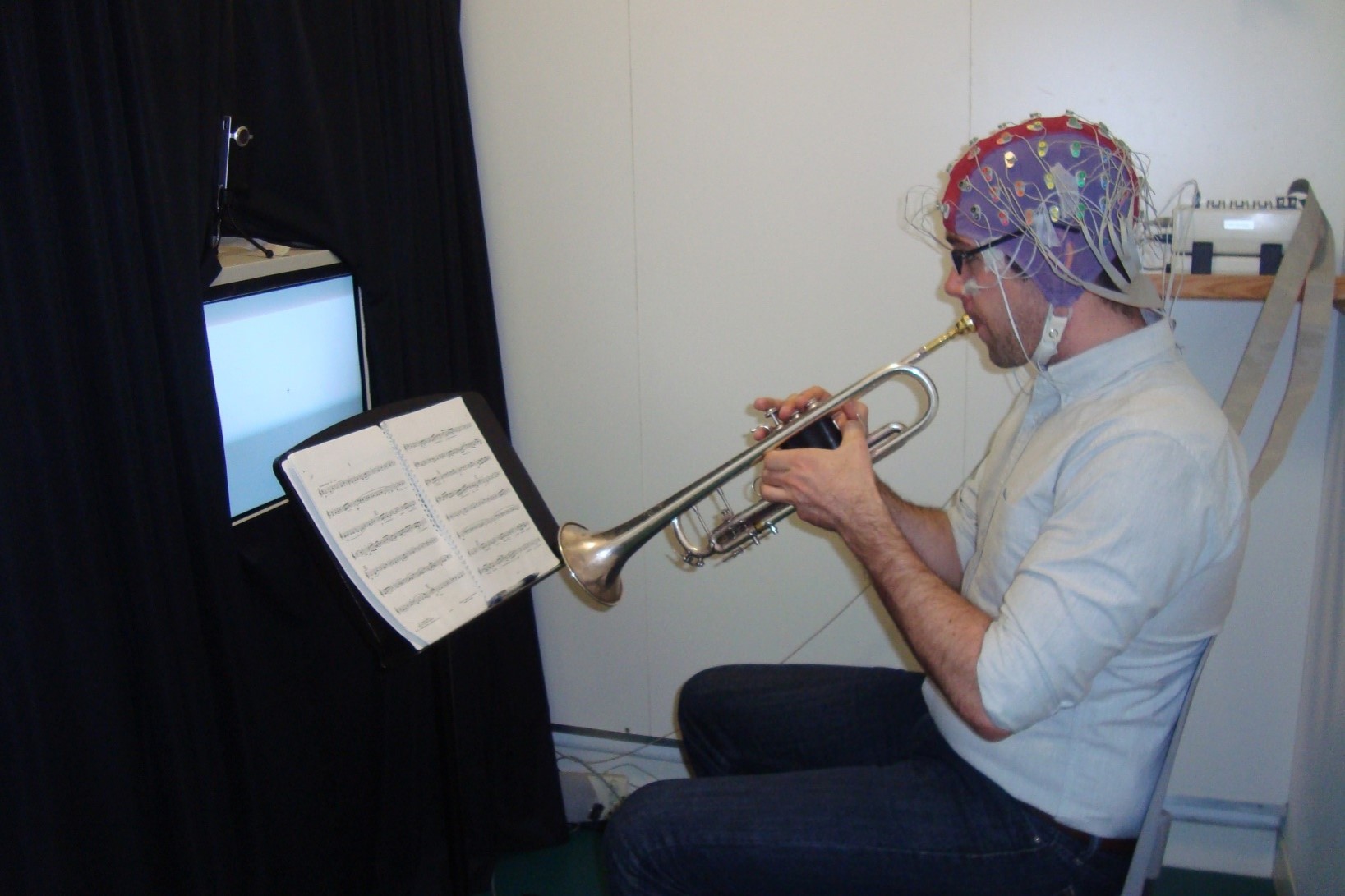When psychologists talk about “flow states”, they’re referring to that feeling of getting totally lost in a task, unaware of outside distractions. Sounds pretty great, right? Lots of research has pointed to the feelgood benefits of being in flow and how we can all achieve it, but a recent study discovered new insights into what happens inside our brains in the afterglow of flow.
While flow states can be achieved during all different types of tasks, one group that seems to experience them more readily is musicians. That’s why a team led by Professor Joydeep Bhattacharya from Goldsmiths, University of London recruited 48 musicians, including singers, wind players, string players, and pianists, for their recent study.
“Musicians often experience this state of flow during playing,” the researchers wrote in their paper. “However, we know little about the brain’s activity during this unique state. One challenge in studying the brain during musical performances is the potential interference caused by movements, which can disrupt the recorded brain responses.”
To get past this hurdle, the team decided to focus on the immediate aftermath of the flow state, concentrating on the moments just after the musicians had completed their performance. This meant they could collect electroencephalography (EEG) recordings while the participants were sitting completely still, and get a better sense of how the flow “afterglow” presents within the brain.
The musicians were asked to play pieces that either did or did not induce flow, so as to compare between the two brain states. Each participant selected their own music that they knew would or would not allow them to get “in the zone”, based on a description the researchers gave them.
During and immediately after the performances, the team collected EEG data.

Not sure the New York Philharmonic’s new dress code will catch on, to be honest.
Image credit: Goldsmiths, University of London
The researchers noted that there were some unavoidable differences during the performances themselves – for example, some of the musicians were more comfortable standing and some sitting, and some used scores while others played from memory. However, they wanted to maximize the chances of each individual achieving a flow state, and there was consistency in the EEG recordings taken after the performances had ended.
After a flow-inducing performance, there was an increase in alpha and beta brain activity, particularly in the frontal regions of the brain. Alpha waves are associated with creative thinking and problem-solving, while high beta activity generally indicates a state of alertness and focus.
These findings were even more pronounced in the most competent musicians, which suggests that their brains may have adapted to reap the maximum benefits from a flow state.
The data also suggested increased transmission of information from frontal brain regions to temporal and parietal regions, which was again seen more strongly in the expert musicians. This suggests that during flow, the brain is more engaged on the task at hand, and can more easily suppress irrelevant information.
The researchers say that this is the first-ever insight into the afterglow of a flow state and its lasting impact on the brain.
“These specific set of findings provide exciting perspectives on how flow states could impact musicians’ brain,” said Professor Bhattacharya, in a statement emailed to IFLScience.
“Importantly, our study introduces a practical method by which genuine flow states can be studied in the lab. With future research, it may be possible to empirically understand the nature of peak performance and enjoyment in various activities.”
The study is published in the Creativity Research Journal.
Source Link: Achieving A “Flow State” Gives The Brain A Welcome Boost